#misselthwaite archives
Text
#literary inspired web series#emma approved#nothing much to do#lovely little losers#green gables fables#the emma agenda#the autobiography of jane eyre#maggie hale's corner#the misselthwaite archives#jules and monty
34 notes
·
View notes
Video
youtube
“Just please don’t say you love me, ‘cause I might not say it back.”
#the misselthwaite archives#misselarch#liw#fanvid#fan edit#mary lennox#declan sower#the secret garden#dickon sowerby#literary inspired webseries#video
16 notes
·
View notes
Note
Top five LIWs?
Oooooh thank you, okay, *rolls up sleeves*
1. Nothing Much to Do
2. Away From It All
3. Twelfth Grade or Whatever
4. All for One
5. The March Family Letters
And I need to rewatch all of them bc it’s been years!
4 notes
·
View notes
Text
A few adaptations/retellings don't get the significance of the fact that Mary has grown up unloved and for whatever reason try to soften her relationship with her parents. But many of them do grasp just how neglected she's been and highlight it, especially in light of how prickly it has made her. These versions tend to understand the root of her issues relatively easily.
But an overwhelming number of recent adaptations/retellings do not do the same for Colin. It is extremely common for these versions to give him/his equivalent a warm relationship with his now-deceased mother/equivalent. In The Humming Room, Phillip "adored [his mother] and she adored him back," and he is in the depths of depression after losing her. Callie in The Misselthwaite Archives has fond memories of her late mother and footage of the family enjoying happy times in the glade, as well as a father who, even though he's gone frequently, regularly keeps in touch with her through affectionate postcards. When Mary meets Colin in the 2020 film, he talks about his relationship with his mother, how she "loved me hugely" (painfully awkward wording), and her letters back that up. Colin in The Secret Garden on 81st Garden mourns the apparently very recent death of a loving father and, despite his anger toward Mr. Craven, is still surrounded by adults who appear to genuinely care about his wellbeing. Although Clement in The Edge of In Between was an infant when his mother died, he apparently had such a close bond with her already that he lost all color (something that happens to those who succumb to grief in this book's world) after losing her. It's been a while since I've read A Bit of Earth, but if I recall correctly, Colin in that book also knew and loved his mother before her death and struggles more with living up to (perceived?) familial expectations than feeling rejected or unloved.
And I'm not saying that these creative choices were necessarily ineffective within the stories that these authors/creators chose to tell. But it does take the character in a fundamentally different direction. Not only does it eliminate one of the deliberate parallels in his and Mary's backgrounds, but it also alters the root of the character's problems.
There are a lot of messed-up reasons for why he is the way he is, but what it ultimately comes down to is this: Colin is unloved. He has never been loved. Like Mary, he exhibits the behavior he does because he has never learned how to connect with others. It's easy to miss this about him, easy to get so caught up in what a horrid little brat he genuinely is that it might not immediately occur to the reader how loveless his existence has been--every bit as loveless as Mary's. His mother died giving birth to him, his father rejects him because of this, and his caretakers are all "tired of him" and (in one case) have even said in front of him that it would be better for him and everyone else if he died.
No wonder he has such ambivalence toward living. Dickon tells Mary once that his mother believes that unwantedness is "th' worst thing on earth for a child," that "Them as is not wanted scarce ever thrives." And that is the root of Colin's problems, the reason his expectation out of life is to die. This is more of the point than any psychological condition that we might be able to pin on the character--those things are symptoms, not causes. This is why developing strong friendships is so important to his arc, why his getting hugged (possibly for the first time in his life) by Mrs. Sowerby and telling her that he wishes she were his mother is such a poignant moment, why his arc ends with being reunited with and accepted by his father.
(Weirdly enough, an adaptation that did seem to pick up on this was the 1986 musical, in which Colin is introduced with a solo entitled "No One Needs Me." A bit too on-the-nose and self-aware for him to be able to spell out like that, perhaps, but as a summation of the problem? Spot on.)
If, as recent adaptations and retellings interpret him, he is a child who has been loved and has lost that, his behavior as Burnett depicts comes from a different place and possibly makes less sense, his whole character changes, and the themes shift. He becomes someone who needs to work through traditional grief--which in the original book is his father's arc, not his--rather than someone who needs to learn that his existence has meaning and that he can matter to other people (and they to him).
And I think that's why a lot of these reinterpretations of the character feel a bit off to me? There tends to be so much concern for remolding him in light of themes of disability or mental health (which are significant to his character! but not all that there is) that the original point of his being as much an emotionally neglected and unloved child as Mary can get lost in translation.
22 notes
·
View notes
Note
Have you done The Misselthwaite Archives webseries? It's obviously one of the looser adaptations, but I thought it was really well done. Love to hear your thoughts on it!
my first ask!!! i’m so excited!! thank you, anon! i love asks, btw, and would love for people to continue to send them!
i actually watched the misselthwaite archives as it was coming out! every wednesday, i watched the newest episode after coming home from school. it was the highlight of my week!
i actually rewatched a good chunk of episodes the other night. it dredges up a lot of nostalgia for me in a bittersweet way. i appreciate the series a lot, and i think everyone involved did a great job, but it’s the way the creators approach adapting the source material that i find to be a little off the mark.
this is mainly because i think something is inevitably lost when bringing the secret garden into modern day (which was, back then, good old 2015). i think, if i were trying to adapt the book into a modern setting, i’d minimize the modern day trappings as much as possible; references to modern pop culture like parks and recreation and beyoncé, like misselarch employs, are fleetingly fun, but i think they date the material too much. they also feel too kitschy and cute, in my opinion. that’s my opinion of a lot of the misselthwaite archives’ adaptation choices—they’re cute, but don’t feel like they do justice to the material.
i feel making mary a snarky, bitter teenager seems like a good idea at first, but i think it’s ultimately a misrepresentation. in the original novel, she’s prickly and prone to insulting others, sure, but she’s also sullen, withdrawn, and socially awkward—her inability to connect with others is derived from the lack of positive social interaction she had since she was born. she’s emotionally stunted, which mary in the misselthwaite archives doesn’t communicate at all in her video diaries to dr. burnett (which is a very nice homage, i will admit).
on the contrary, teen!mary is charismatic, with a biting wit; she’s had friends in the past, but they only cared for her parents’ money. ironically, her friendship with declan seems almost to benefit him more in terms of social development than it does her. her petty cruelty seems more the product of watching mean girls one too many times than any deep-rooted emotional trauma. though there are gestures made to indicate that she feels badly about her celebrity parents’ deaths, i never found them particularly convincing. i felt her vulnerability as an orphan, as a young woman with no prospects, with no real friends—as she is at the the beginning of the story—never came through properly. it felt like the writers wanted to modernize mary’s contrariness in a way, metamorphosing it into a more palatable 21st-century diagnosis: jaded teenager syndrome.
which is cute, but not very book-accurate, i feel. it colors the rest of her journey if she hasn’t been socially deprived like she is in the novel. i can’t imagine the mary of the misselthwaite archives having a profound revelation about how much nicer people look when they smile, for instance. as a result, her journey feels a lot less interesting to me.
i personally feel mary should have been prickly, of course, and sometimes aggressively mean, but more unwilling to talk about her feelings than anything—more emotionally numb after years of neglect, more uninterested in nearly everything. she shrugs when spoken to, looks eternally glum, glares at the pitying glances of sarah medlock. it’s only with the influence of the characters in the story that she’s coaxed into opening up and begins to bloom.
i really liked sarah medlock’s characterization, as well as uncle art’s and phoebe’s! i love that aunt sarah is presented as having positive intentions from the get-go, as i’ve always hated her vilification in other adaptations. i also really like the portrayal of declan—i like the idea of him being a bit of a social misfit.
with callie, i really enjoy her actress’s portrayal—she’s properly hysterical and catty! but i feel like turning colin into a girl doesn’t add anything to the story, and removes some of the narrative tension that comes with mary coming into contact with a member of the opposite sex that mirrors her in terms of upbringing and attitude. if anything, i feel it downplays the tension of their budding friendship, as the subconscious assumption that people are more likely to become friends people of the same sex is one that the audience undoubtedly has.
i don’t particularly like callie being steeped in pop culture, either, though it makes sense in a modern setting, technically. in the source material, though, colin is surrounded by interesting things to engage with, but he’s disinterested in all those things when mary stumbles across him. he’s more interested in thinking about his illness. i think having callie be immersed in pop culture as a way to entertain herself indicates a level of engagement with the world that colin is completely shut off from, which definitely affects his characterization. a version of colin that is invested in things enough to buy merchandise of them, etc. is a version of colin who is already significantly more “alive” than his book counterpart from the beginning. a more accurate idea of communicating colin’s isolation, i feel, would have callie being too cynical and emotionally stunted to be interested in anything, at least for very long; any media about characters going on interesting adventures only reminds her of the lackluster quality of her own life and makes her insecure, so she eschews pop culture in favor of frequent depression naps and bullying aunt sarah and phoebe. sometimes she’ll read if she’s bored, but not often, and she refuses to have lessons with phoebe unless she feels well enough to learn, leaving her education full of gaps despite her intelligence. callie, in my hypothetical adaptation, is determined to live a miserable, barren existence, much like colin.
anyway, it also seems that canon callie isn’t dogged by colin’s negative thoughts quite as much, and her feelings surrounding her condition feel too subdued to communicate colin’s utter maladjustment. the episode where callie “explodes” feels too muted by half! this girl should be furious, incoherent with hysteria, raging at the world for her mother’s death, stricken with self-loathing and misery! but, while callie’s actress does an amazing job with what she has, i can’t help but feel that the adaptation of her character was a bit lukewarm.
i also think giving mary and callie a history together undermines the importance of them finding each other for the first time, and gives their friendship too much of an instant leg-up from the minute mary finds her. it makes the work she has to do to befriend/reform callie feel too easy.
not to mention, the pacing of the second half of the story, where mary finds callie to the point where she and declan plan to take her to the glade, seems way too fast. i feel there was a lot of missed potential there; they could’ve really drawn out the rockiness of mary and callie’s relationship, like mary and colin’s in the book.
i think my big problem with the misselthwaite archives is that the creators, in service of adapting it to modern times, undercuts and downplays a lot of the earnestness of the characters’ relationships that i found so charming in the book. instead of instantly loving dickon and breathlessly calling him beautiful, mary only grudgingly admits that she needs declan’s help, and any affection she has for him she keeps close to the chest. colin’s desperation for mary’s company, his screaming for her to come to him, is rendered as needy over-texting, devoid of any emotional urgency; callie seems more bored, rather than truly lonely and unable to communicate in an emotionally mature manner, like colin is. even declan is subdued in his love for nature, more shy. it makes sense for a modern adaptation not prone to the novel’s 1910s sentimentality, but i can’t help but feel that the adaptation feels dull and repressed as a result.
i also wish we got a proper video of callie and declan meeting!
like a lot of adaptations, i think the pacing is off; more time should be spent on ironing out mary and callie’s relationship, more time should be spent in the garden, helping callie bloom. the “eye of the tiger” bit was cute, but gah, colin walking took months and months of practice, and to see all that development be reduced to a short little montage feels disheartening. i’d love to see at least 10 episodes of the teens just chilling in the glade, talking about their childhood traumas in more detail, having little conflicts among each other, planting flowers and setting up decorations...for a series with such short installments, that kind of episodic structure would be perfect. maybe they could create a subplot where mary suggests callie go to her high school and she has to work that out with medlock and that becomes a whole character-building thing, or she has a conflict with basil, or callie properly hashes out her negative feelings toward declan, or something. i dunno. i just wanted more.
i think the misselthwaite archives was really cute, but i feel it misses the mark on the melancholy of the original story; the glade itself is perfect, but the interpretation of mary feels too derivative of the “bratty teenager” trope to be honest to her book character, in my opinion. and i dislike pop culture references in timeless classics, even modern-day interpretations of them, lol. but i still appreciate it as an adaptation, though—it’s just so eager to translate the sentimentality into something more modern that it loses the essence of what i find so charming about the book, which is the unabashed intensity of the characters’ friendships, the extreme character development, and the scale of the emotional and social deprivation mary and colin suffered before said character development occurs.
i also wish declan had more animals around him, though obviously that can’t be helped, haha.
please send more asks, anon! i’d be happy to answer them! :)
7 notes
·
View notes
Photo
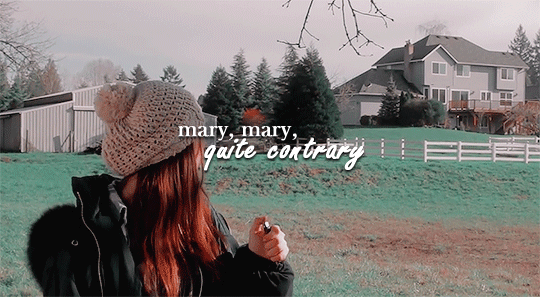
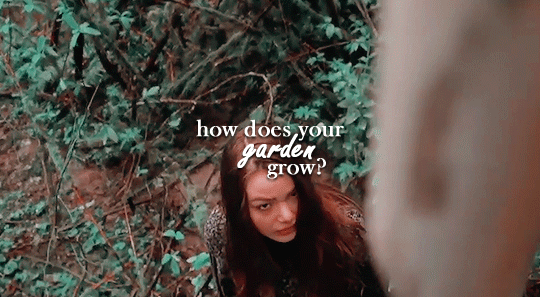
anonymous asked:
mary lennox or liddy smallbury?
#misselarch#the misselthwaite archives#mary lennox#the secret garden#listen i love liddy but mary has a special place in my heart#*#thisorthat
52 notes
·
View notes
Video
youtube
It's been five years since we released our first episode of The Misselthwaite Archives! We're so thankful to all of our fans for supporting the show while it aired and afterward—your kind words, passionate discussions, and beautiful fan art really encouraged us in 2015 and continue to inspire our creative endeavors. If you haven't seen the series in a while, give it a re-watch to prepare for the coming of spring!
#MisselArch#The Misselthwaite Archives#The Secret Garden#Frances Hodgson Burnett#LIW#Pencil Ink Productions
43 notes
·
View notes
Photo
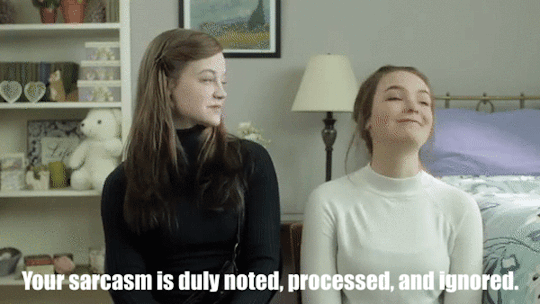
the misselthwaite archives → favorite quotes 1/x
#the misselthwaite archives#misselarch#ahh i still quote this part#mine#gifs#what a reaction gif#how has this not been gif'd yet?!#misselarch quotes
5 notes
·
View notes
Text
undefined
youtube
Series title(s): The Misselthwaite Archives
Channel(s): Pencil Ink Productions
"The Misselthwaite Archives" is a modern adaptation of The Secret Garden by Frances Hodgson Burnett, told through a series of online videos, images, and written vignettes.
@pencilinkproductions on Tumblr
#the misselthwaite archives#pencil ink productions#frances hodgson burnett#the secret garden#literary webseries#based on literature#youtube
10 notes
·
View notes
Video
youtube
Four years ago today, we aired the very first episode of The Misselthwaite Archives! If you're feeling a little despondent at the cold winter months, now is a great time to re-watch the whole series on YouTube. Stay tuned for several exciting announcements about new projects!
#MisselArch#The Misselthwaite Archives#Pencil Ink Productions#The Secret Garden#LIW#Frances Hodgson Burnett
26 notes
·
View notes
Note
What are some good webseries that have positive rep for people with disabilities?
I’ve seen a few (definitely looking for more though). Disability rep is one of the areas where most forms of media are lacking.
Lucy Lewis Can’t Lose - the main character Lucy is an awkward student with a fear of public speaking. She has a walking aid and another character uses a wheelchair.
Call Me Katie/Nothing Like the Sun - First season based on Taming of the Shrew, second season is an original storyline but uses the same characters. One of the Georges (a pair of zany bffs who are secondary in the first season and central in the second) has two prosthetic legs below the knee.
All For One - Based on Three Muskateers, following college freshman Dorothy as she seeks to join her dream sorority. In the second season, Dorothy and Owen have ADD. Alex also has complex PTSD.
The Roedell Project - An original series about a group of college students filming a class project. Dylan has ADHD.
Any Other Vlog - Based off Romeo and Juliet, following high schooler Bianca through her friendships and experiences. Marcy has dyslexia.
Twelfth Grade or Whatever - Based on Twelfth Night, Viola goes undercover as their twin sibling and encounters romantic drama. Liv has agoraphobia.
Misselthwaite Archives - Based on The Secret Garden, Mary is a wayward youth who is brought to her uncle’s mysterious estate. Mary’s cousin has agoraphobia and severe asthma.
The Grey Tarmac Road - Based on The Wizard of Oz novels, Trudy finds herself in an entirely new world when she moves to a new town. Two characters have autism (I can’t remember who other than Nimmie rn tho).
I have also seen many webseries with anxiety/depression rep, which not everyone includes when they talk about disabilities; so please send another anon message if you’re curious about those being included in this list. ❤️
#the grey tarmac road#the roedell project#all for one#The Misselthwaite Archives#twelfth grade or whatever#any other vlog#call me katie#nothing like the sun#weathersbywebseriesreviews#disability representation#webseries#liw#lbw#original webseries
16 notes
·
View notes
Photo
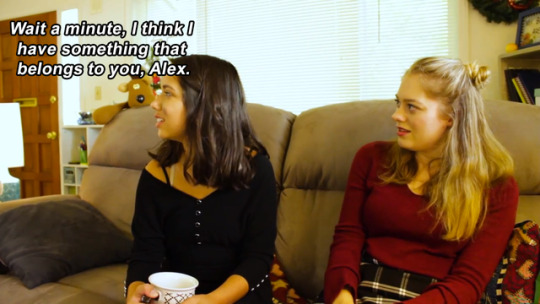

turtle
25 notes
·
View notes
Photo

Mary Lennox from The Misselthwaite Archives
52 notes
·
View notes
Text
I’m currently watching through all the web series based on classic lit that i kept saying i’d watch and then never did. Just finished Green Gables Fables and now i’m on to The Misselthwaite Archives.
6 notes
·
View notes
Text
I'm trying to wrangle all the TSG research into some kind of outline that makes sense, and a few thoughts have come up.
There were a lot of adaptations of The Secret Garden in the late 1980s and 1990s, coinciding with the book's coming into public domain in 1987. This died down for a while, but there's been a resurgence of adaptations and retellings within the past decade or so. These responses to the story would thus have come from people who were likely to have been influenced by such well-known adaptations as the 1993 film or the 1991 musical.
The adaptations of the 80s/90s tended to emphasize gothic elements, like the eerieness of the manor, the tragedy of lost parents, and an interpretation of Colin as the agency-less damsel in distress victim of villainous/misguided adults. They also tended to downplay the more down-to-earth elements, such as the influence of the Sowerbys and Ben Weatherstaff and the practical side of the children's recovery. Mrs. Sowerby, who is the book's personification of ideal parenthood, is notably absent from most of these adaptations. Since these adaptations were so well-known, they have had an impact on many people's understanding of the story, to the point that inventions of these adaptations are often treated as if they come from the book. (For the last time, everyone, Mary's uncle is not a lord, and Burnett never wrote the "whole world is a garden" line or anything like it.)
Therefore, we can look at the more recent adaptations and retellings as responses to not just the book but to earlier adaptations as well. And the influence of these adaptations has probably been a factor in these versions' reframing the story as about traditional grief rather than emotional neglect. It fits in better with the gothic perception of the story, which is more about the Tragedy and Loss and Drama. The elements that were downplayed in 80s/90s adaptations are also either downplayed or entirely omitted in recent versions. For instance, despite Mrs. Sowerby's prominence in the text, she or an equivalent does not appear/plays no meaningful role in such works as The Humming Room, The Misselthwaite Archives, The Secret Garden (2020 film), The Secret Garden on 81st Street, The Edge of In Between (maybe--I need to reread this one to confirm), The Secret Garden of Yanagi Inn, and A Bit of Earth, all of which date from 2012-2023. Without a positive maternal figure as a point of comparison and a force for good, the narrative is not interested in examining the effects of failed parenting versus successful parenting, and the themes have to go elsewhere. These are not necessarily "bad" adaptations or poorly done works in their own right! But their themes and priorities often significantly differ from those of the original text. Recent adaptations/retellings have tended to turn into a translation of a translation, and in the process some of the original's essence has been lost.
#The Secret Garden#there are untapped themes in this book that are worth exploring#but so many recent adaptations and retellings are stuck in a similar rut
29 notes
·
View notes
Photo
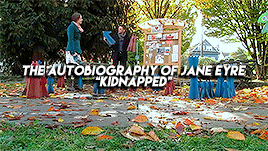
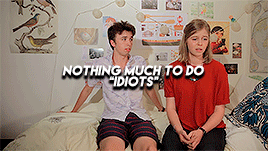
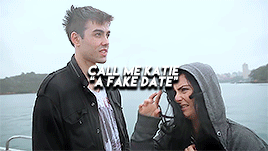
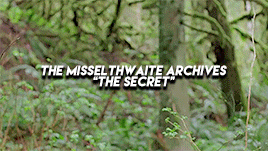
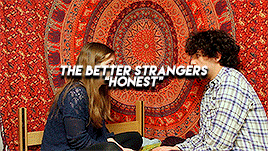
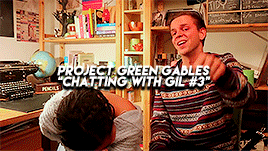
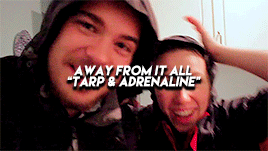
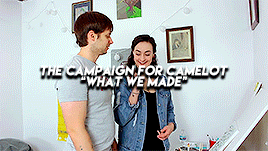
some of my favorite LIW episodes!
#the autobiography of jane eyre#nothing much to do#call me katie#the misselthwaite archives#the better strangers#project green gables#away from it all#the campaign for camelot#*#wittenverse
88 notes
·
View notes